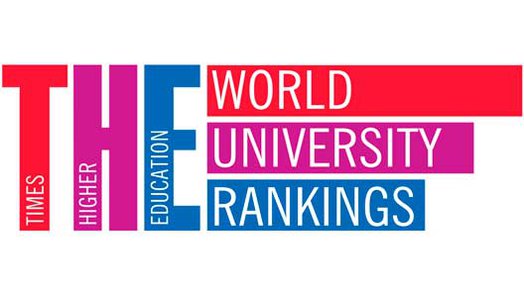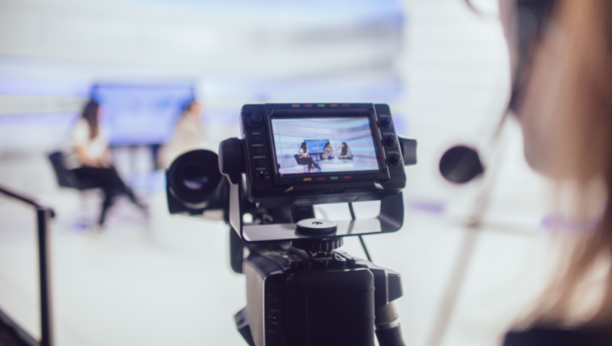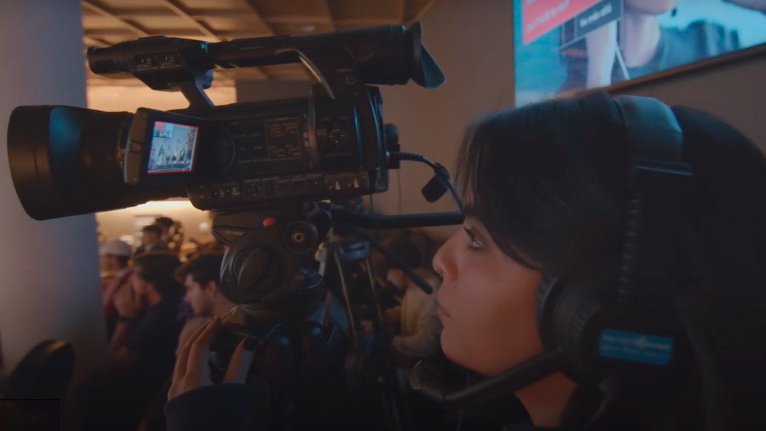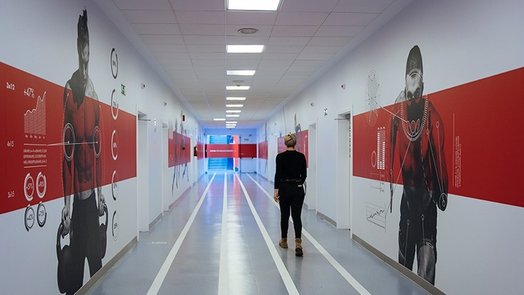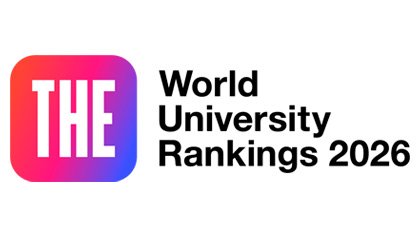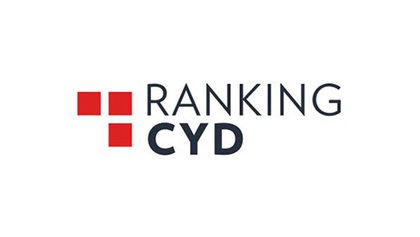-50% Discount on place reservation for 26/27 intake until February 28th!
Bachelor's degree in Advertising
The Bachelor’s Degree in Advertising is an official four-year programme at Universidad Europea that’s designed to train professionals to come up with original and imaginative responses to brands, professionals who are able to research and propose the strategic objectives that advertisers seek.
Students on the Advertising degree will have the knowledge and skills to be able to work in different areas within the field of advertising, commercial and corporate communication.
The degree in Advertising, taught entirely in English and made up of 240 ECTS, will see you learn advertising from leading experts in their field as well as take part in internships and work placements, ensuring you have the skills and experience to succeed when you graduate.
Official degree issued by Universidad Europea de Madrid
| Campus-based | Villaviciosa de Odón | 4 Years, 240 ECTS | Start: 14 sep. 2026 | Faculty of Economics, Business and Communication Sciences |
Communication and Marketing facilities
Study plan
Study plan structure
Programa de estudios
PRIMER CURSO
| Materia | ECTS | Tipo | Idioma de impartición |
|---|---|---|---|
| Communication Theory | 6 | CORE | English (en) |
| History of Advertising | 3 | COMPULSORY | English (en) |
| Advertising Ecosystem | 3 | COMPULSORY | English (en) |
| Rhetoric and Oratory | 6 | COMPULSORY | English (en) |
| Creative Thinking | 6 | CORE | English (en) |
| Persuasive Communication | 6 | CORE | English (en) |
| Marketing Fundamentals | 6 | CORE | English (en) |
| Corporate Communication | 6 | CORE | English (en) |
| Editing and Graphic Design | 6 | COMPULSORY | English (en) |
| Audiovisual Technology | 6 | COMPULSORY | English (en) |
| Photography and Visual Arts | 6 | COMPULSORY | English (en) |
SEGUNDO CURSO
| Materia | ECTS | Tipo | Idioma de impartición |
|---|---|---|---|
| Work Processes in Advertising Agencies | 6 | CORE | English (en) |
| Consumer Psycho-Sociology | 6 | COMPULSORY | English (en) |
| Professional Legislation | 3 | COMPULSORY | English (en) |
| Media, Supports and Formats | 6 | CORE | English (en) |
| Editing and Graphic Design 2 | 6 | COMPULSORY | English (en) |
| Video Editing | 3 | COMPULSORY | English (en) |
| Transmedia Storytelling | 6 | CORE | English (en) |
| New Artistic Trends in Advertising | 6 | COMPULSORY | English (en) |
| Brand Strategy | 6 | CORE | English (en) |
| Advertising Strategy | 6 | CORE | English (en) |
| Ethics and Professional Efficiency | 6 | COMPULSORY | English (en) |
TERCER CURSO
| Materia | ECTS | Tipo | Idioma de impartición |
|---|---|---|---|
| Social Research Methods | 3 | COMPULSORY | English (en) |
| Influence and Relational Impact | 6 | COMPULSORY | English (en) |
3rd year (Specialization in Advertising Creativity)
| Materia | ECTS | Tipo | Idioma de impartición |
|---|---|---|---|
| Online Desing and Programming | 6 | OPTIONAL | English (en) |
| Video Editing 2 | 6 | OPTIONAL | English (en) |
| Advertising Production (Digital, Audiovisual, Graphic) | 6 | OPTIONAL | English (en) |
| Neurocreativity | 3 | OPTIONAL | English (en) |
| Corporate Visual Identity | 6 | OPTIONAL | English (en) |
| Copy | 6 | OPTIONAL | English (en) |
| Art Direction | 6 | OPTIONAL | English (en) |
| Creativity Lab | 6 | OPTIONAL | English (en) |
| Innovation and Entrepreneurship | 6 | OPTIONAL | English (en) |
3rd year (Specialization in Advertising Strategy)
| Materia | ECTS | Tipo | Idioma de impartición |
|---|---|---|---|
| Neuromarketing | 6 | OPTIONAL | English (en) |
| Digital Marketing | 6 | OPTIONAL | English (en) |
| Communication Management | 6 | OPTIONAL | English (en) |
| Events and Sponsorships | 3 | OPTIONAL | English (en) |
| Big Data and Data Processing | 6 | OPTIONAL | English (en) |
| Media Planning | 6 | OPTIONAL | English (en) |
| Account Management | 6 | OPTIONAL | English (en) |
| Strategy Lab I | 6 | OPTIONAL | English (en) |
CUARTO CURSO
| Materia | ECTS | Tipo | Idioma de impartición |
|---|---|---|---|
| Entrepreneurial Leadership | 6 | COMPULSORY | English (en) |
| Final Degree Project | 9 | COMPULSORY | English (en) |
| External internships | 6 | COMPULSORY | English (en) |
| University Activities | 6 | OPTIONAL | English (en) |
4th year (Specialization in Advertising Creativity)
| Materia | ECTS | Tipo | Idioma de impartición |
|---|---|---|---|
| Advertising Photography | 6 | OPTIONAL | English (en) |
| Usability Design (UX) | 6 | OPTIONAL | English (en) |
| Video Post-Production | 6 | OPTIONAL | English (en) |
| Infographics and Data Visualisation | 3 | OPTIONAL | English (en) |
| Portfolio | 6 | OPTIONAL | English (en) |
| Art Direction 2 (Packaging, Promotional and Direct) | 6 | OPTIONAL | English (en) |
| Digital Creativity Lab | 6 | OPTIONAL | English (en) |
4th year (Specialization in Advertising Strategy)
| Materia | ECTS | Tipo | Idioma de impartición |
|---|---|---|---|
| Retail Marketing (Shopper Marketing) | 6 | OPTIONAL | English (en) |
| Direct and Promotional Marketing | 6 | OPTIONAL | English (en) |
| Live Communication (Event Organisation) | 3 | OPTIONAL | English (en) |
| Public and Institutional Relations | 6 | OPTIONAL | English (en) |
| Trend Research | 6 | OPTIONAL | English (en) |
| Strategy Lab II | 3 | OPTIONAL | English (en) |
| Media Lab | 3 | OPTIONAL | English (en) |
| Digital Business Models | 6 | OPTIONAL | English (en) |
Programme implementation
Course of 2018/2019.
Number of places for incoming students
31 places in english mode.
Internships
Internships are a key element of your training. Gaining experience based on what you have learned in your degree is the best way to enter the job market. The university has numerous internship agreements with important companies in the advertising sector, among which we would highlight Atres Advertising, Contrapunto BBDO, Comunica +A, Gray España, TBWA, Ogilvy One Worldwide, Denstu Aegis, SCPF, McCann, Havas Media Group and M&C Saatchi.
There are two types of internships: curricular (included in your curriculum) and extracurricular (which you can do on a voluntary basis). In order to do an internship in a company, you will need to have passed 50% of the credits and enrol in the subject before starting your internship. These internships are monitored by the company and the internship professor and also involve final reports for assessment.
If you would like to improve your work experience before finishing your university studies, you can do an internship. You can do an internship from the second year onwards, but we would remind you that internships are a form of training that is complementary to your studies; therefore, the more knowledge you have acquired over the course of your degree programme, the more you will benefit from the internship experience.
Employability
Career Opportunities Opened up by the Bachelor’s Degree in Advertising
Graduate in advertising. Experts with creative and strategic knowledge, with extensive knowledge of new formats and formulas. Advertising graduates will be able to work in different areas within the field of advertising, commercial and corporate communication, anywhere that creativity and strategy are essential skills:
Advertising agencies and media agencies
- On the strategic side:
- Customer services.
- Account management.
- Strategic planning.
- Content manager.
- Social media manager.
- SEM/SEO specialist.
- Management and organisation of events.
- Public relations and corporate communication manager
- Mobile marketing specialist.
- On the creative side:
- Creative director.
- Art director.
- Copywriter.
- Graphic / web / multimedia designer.
- Advertising Producer.
- Branded content specialist
Companies
- Director of communication.
- Marketing manager.
- Director of digital communication.
- E-commerce manager.
- Event management and business protocol.
- Head of advertising in communication groups.
New profiles
- Digital analyst & Big Data.
- AV (Augmented Reality) & VR (Virtual Reality) specialist.
- IOT (Internet of Things).
- Inbound marketing specialist.
- Traffic manager.
RTB manager.
Teaching
- Public Sector.
- Private Sector.
Admissions
Start your future at Universidad Europea
You can become a student at Universidad Europea in three easy steps.
1
Admission exams
Start your admission process by calling +34 918257503 or request information and our advisors will contact you.
2
Place reservation
Once you have been admitted, secure your place by paying the reservation fee.
3
Enrollment
Submit the required documents to formalise your enrollment.
Scholarships and financial aid
We want to help you. If you want to study at Universidad Europea, you will have at your disposal a wide selection of own and official scholarships.
Credit recognition and transfers
You don’t have to stick with something you don’t like. That’s why we’ve designed specific plans for credit recognition and transfers.
Request your online credit recognition review, transfer your academic file and start studying at Universidad Europea.
Admissions requirements
- Obtain a passing grade in the University Entrance Examination, in accordance with current legislation.
- Obtain a passing grade in the entrance exams for those over 25 years of age and those over 45 years of age.
- Higher Technicians, Higher Technicians of Plastic Arts and Design and Higher Sports Technicians.
- Graduates, Graduates, Technical Engineers, Engineers, Architects or Graduates.
- Baccalaureate students from educational systems of member states of the European Union and other countries with which international agreements have been signed in this regard, may access the Degree provided that in their educational system they have access to the university, and that they comply with the provisions of the current regulations.
- Students from other countries and those who do not have an international agreement signed, must homologate their studies and take the university entrance exam(s) if required according to RD 412/2014.
- Applicants with work and professional experience in relation to an education, who do not have any academic qualification enabling them to access the university by other routes and who are or have reached 40 years of age before October 1 of this year.
- Non-Spanish speaking students who apply to study the degree in Spanish, will be able to accredit a B2 level of language of the Common European Framework of Reference for Languages of the European Higher Education Area with a recognized degree or certificate or, alternatively, they will be able to prove that they can do so by means of a test designed by the university itself.
Open days
We know that now is an important moment to progress in your professional future. That is why we open our virtual doors to you and invite you to join us. We want you to meet the director of your programme and solve all possible doubts you have. You’ll also discover what makes our students and our online methodology unique.
21 March
Faculty
54% of the degree's faculty are PhDs.
Our teaching staff
- Alvaro Gómez Iranzo
With a degree in Advertising Communication, Álvaro is a university lecturer in Advertising, Marketing, Audiovisual Communication and Business Administration and Management (ADE). He is currently responsible for marketing and communication at the Company Sinews. - Begoña Moreno López
PhD in Advertising from the University of Valladolid and Master in Environment and CSR.
As a professional, she has worked for more than 20 years as an art director in national and international agencies such as McCann Erickson, Delvico Bates or 210 Publicidad, has run her own design and illustration studio and has been the founder of El Cencerro Rural Ad Festival.
As an academic, she has been a lecturer at the UEM since 2007. She has given talks and lectures at prestigious institutions such as the Hogeschoole von Amsterdam, the Hogeschoole von Maatricht, INAP, the University of Stadfforshire and the University of Arts in Dublin, and directs and coordinates the UEM's Pitching Minds student team, which has won more than 50 awards in the last twelve years. - Bienvenida Araceli Parres
Professor at the European University of Madrid in Communication. PhD in Social Sciences from the University of Alcalá (sustainability of the luxury industry in Social Networks).
Her teaching work covers different fields of Corporate and Audiovisual Communication. She is the author of several articles on her research topic and a researcher in the Grupo Imágenes, Palabras e Ideas (Images, Words and Ideas) at the University of Alcalá de Henares. In addition to her teaching work in other public and private institutions, she maintains her professional activity at bespoke_23 where she works materializing values for companies in the luxury industry.
One of her main hobbies is art direction and costume design for short films, making at least, one a year. - Cesar Martin de Bernardo Gonzalez
César Martín de Bernardo, with more than 20 years of experience in marketing, has worked in multinational companies for top-level brands, Antena 3tv, Dia%, Serena Comunicación, while pursuing his true passion: teaching in undergraduate, graduate and executive programs.
Professional Experience: Founding Partner and board member, La Galleta Solidaria (NGO), Spain, 2014- Currently, Marketing Director, Serena Comunicación, Spain, 2005 -2016, Marketing Director of the ecommerce area, Grupo Dia%, Spain, 2001-2005, Marketing Director in the Media area, Antena 3 television, 1997-2001.
Academic Experience: Professor of Marketing, UEM, Real Madrid School Spain, 2006-Currently, IE business School, Department Director of the Faculty of Social Sciences and Communication. UEM, 2016-2020, Academic Director of the Postgraduate Degree in Marketing and Communication. UEM (2010-2015).
Academic qualifications: PhD in Economics and Business Administration, UEM, Spain, 2009, Master in Marketing, IE Business School, Spain, 1999, Bachelor in Business Administration and Management, UCM, Spain, 1997 - Daniel Gallego Frontal
Head Of TV Direction / Technical Director at Trinity Broadcasting Network (TBN)
Daniel Gallego Frontal is a bilingual professor, teaching subjects related to media studies and digital marketing. Daniel also has a background in TV direction, having worked as the Head of TV Direction at Trinity Broadcasting Network.
In addition, Daniel has experience working in various roles at the Olympic Channel and Olympic Broadcasting Services during events such as the Tokyo 2020 Olympic & Paralympic Summer Games and the Buenos Aires 2018 Summer Youth Olympic Games. Daniel has degrees in Media Studies and Advertising from Universidad Europea and has completed a filmmaking workshop at the New York Film Academy. - María José Revaldería
More than 25 years of experience in written and audiovisual media. Responsible for the launch of thematic TV channels in Spain, US and Latam. Responsible for the launch of FlixOlé, the largest OTT of Spanish films.
Currently responsible for the development and expansion of EGEDA's digital commercial activity with projects such as platinocrowfunding.com and platinoempleo.com. Coordinator of Iberseries Platino Industria Market. Associate Professor and independent Producer.
Maria José has attended major films festivals and markets, including Cannes, AFM, Berlin, Buenos Aires, Sundance, and more. She has also acted as a judge for several film festivals and has been a guest speaker and panelist. Maria continues to represent film investors and filmmakers, working with them to obtain strong content according to the current market. She is a member of the Film Academy of Spain. - María Angelica González Martínez
María Angélica González holds a degree in Fine Arts from the Universidad Jorge Tadeo Lozano in Bogotá, Colombia. International Master of Scenography for Opera and Master of research and creation of Contemporary Art at the Complutense University of Madrid.
With extensive experience in art direction, creativity and conceptualization of branding projects, scenography design for festivals, brand experience, international fairs such as Expo Dubai 2020 and events such as Devcon 6 Bogotá, world convention of the Ethereum Foundation in 2022, called the most important technology event in LATAM. She also has more than a decade of experience in art direction of audiovisual pieces such as TV spots and several short films. - Victor Sánchez Franco
PhD in Journalism by the Complutense University of Madrid.
Experience in press and online sports marketing, as well as community manager positions in digital media and advertising. Experience as an external lecturer in web editing and positioning sessions in the Master’s program in Marketing from EAE Business School. Currently, developing academic research related to immersive journalism and digital media. - Silvia Carrasco Arancibia
Journalist graduated from the University of Chile, with an MSc in Global Media from the London School of Economics (LSE), an MA in Communication from Fudan University in Shanghai and a PhD from Goldsmiths College, University of London.
Reporter, correspondent, documentary filmmaker and director of current affairs programmes in different countries and television and radio stations.
Among them: Latin America correspondent for CBS Telenoticias in the United States; news director of Corporación Ecuatoriana de Televisión, ECUAVISA, in Ecuador, and deputy director of the programme España Directo on Televisión Española (TVE). Later, Silvia directed and presented the documentary programme BENDITO MUNDO, on the ODISEA channel in Spain. Currently, she continues to be a correspondent-collaborator for TVN and Canal 13 in Chile, Ecuavisa in Ecuador, CaracolTV in Colombia, Radio Cooperativa in Chile and BLU RADIO in Colombia.
Excellence endorsed by the best
Frequently Asked Questions
What is a BA in advertising?
A BA in advertising is a Bachelor of Arts degree that focuses on advertising and marketing. Students gain a broad understanding of advertising, including the techniques, principles, and strategies used in creating and disseminating advertising messages across various media platforms.
At Universidad Europea, you will study a range of subjects including consumer behaviour, brand management, market research, digital marketing, media planning, creative strategy, and advertising law and ethics.
What can I do after studying advertising?
As a graduate of a degree in advertising, you will have many options open to you. These are just some of the careers and roles that our graduates go into:
- Advertising Account Executive
- Copywriter
- Creative Director
- Media Planner/Buyer
- Digital Marketer
- Market Research Analyst
- Brand Manager
These are just a few examples of the many career options available to advertising graduates. Many advertising professionals also work as freelancers or start their own agencies or businesses.
What are the benefits of studying advertising?
Studying a degree in advertising offer several benefits and allows you to build a profile that employers look for today.
Some of the benefits include:
- Develops Creativity
- Provides Practical Skills
- Enhances Communication Skills
- Provides Industry Exposure
- Offers Career Opportunities
- Enables Business Understanding
What skills are needed for advertising?
Advertising is a multifaceted sector that requires a variety of skills. Here are some skills that are commonly needed in advertising, and that you will develop on a degree in advertising.
- Creativity
- Communication
- Strategic thinking
- Data analysis
- Technical skills
- Time management
- Adaptability

